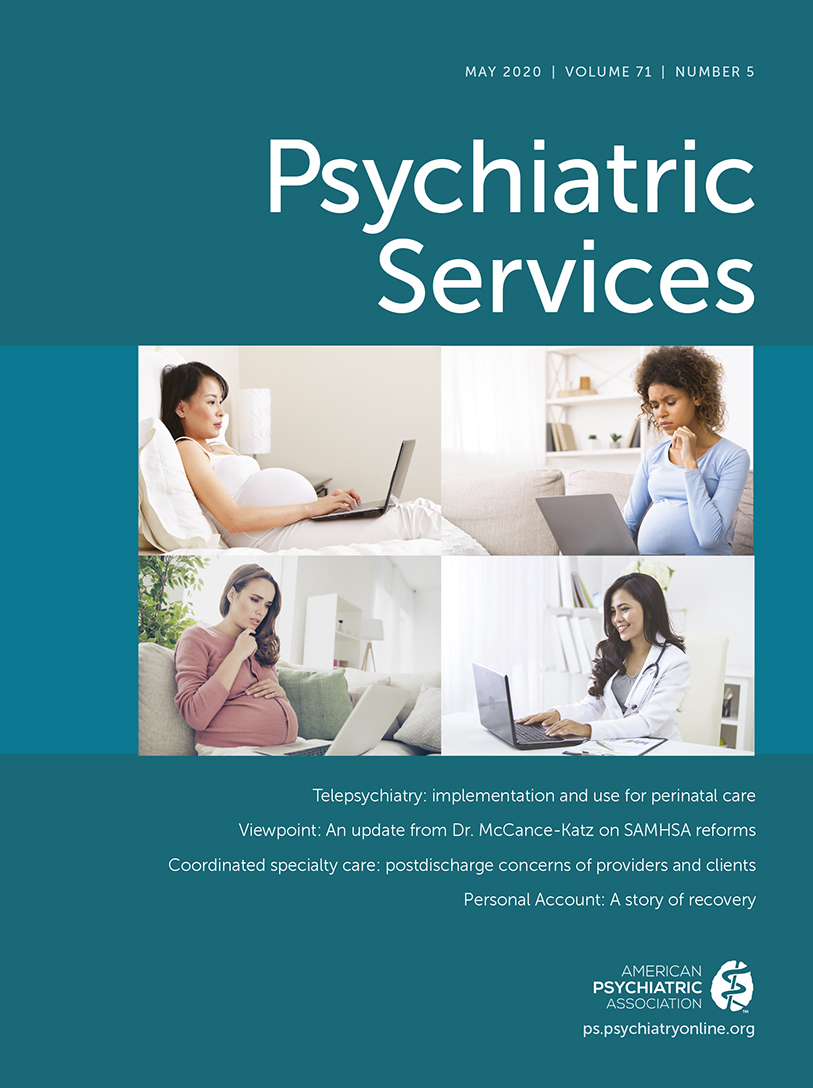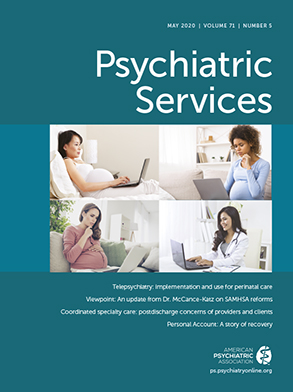In publicly funded settings, cognitive-behavioral therapy (CBT) in group format is often preferred to maximize resources and reach, with outcomes equivalent to individual therapy (
1,
2). However, some people may not want to participate in or be available for group therapy, or it may not be suitable for them, and they may thus request individual treatment, leading to long wait times and prolonged disability from untreated illness. In our publicly funded hospital-based program in Ontario, Canada, individual CBT wait times often exceeded 6 months. In an effort to provide options to increase access to care for people not receiving group treatment, we developed a model of shared CBT, involving a therapist providing CBT to two unrelated individuals (i.e., not in a romantic relationship or belonging to the same family).
Our shared CBT model was adapted from available CBT manuals. Exercises were modified to exploit the intensified relationship of the dyad, and we drew on concepts such as the “buddy system,” which utilizes support partners to achieve behavioral change (
3). Dyadic techniques use shared problem solving, role play, and elicitation of feedback from each other. A detailed session guide was used, but therapists could work flexibly with the dyad as well. The model consisted of an individual intake appointment and 12 weekly sessions. Sessions 1–5 and 7–11 were held with the pair, with sessions 6 and 12 reserved for meeting one-on-one with the individual. The sessions held with individuals provided the therapist an opportunity to assess perceptions of how well the pair was working, as well as consolidate any skills for which there was between-person variation in mastery.
After intake, the therapists used available information to identify matches for treatment. Whenever possible, participants were coupled chronologically from time of referral. Considerations for pairing included expressed preferences (e.g., age and gender match), the clinical presentation and treatment goals, and participant availability.
We collected baseline demographic characteristics and measured attendance, homework completion, depressive symptoms, and dysfunctional attitudes over the course of treatment for 16 pairs (32 persons) who received shared CBT for the treatment of depression. Most of the shared-CBT patients (81%, N=26) were female, owing to our hospital’s focus on women’s health. The mean±SD age was 40.3±14.8, and 72% (N=23) had received some prior psychotherapy. Attendance and homework completion were high (see online supplement). Depressive symptoms and dysfunctional attitudes significantly improved over the course of treatment and were sustained at 6-week follow-up (online supplement).
We propose that shared CBT is an alternative therapy format that may provide additional or different benefits compared with individual or large-group CBT. We ultimately did not find the match to be critical if both individuals were good CBT candidates, meaning they socialize well to the model and can access and change thoughts and behavior. Our therapists noticed strong peer relationships forming, which may have been positive for therapy attendance and homework completion through a shared commitment to participate in the process (
4). Individuals hesitant about traditional large-group therapy could benefit from participating in therapy with a “buddy” to achieve some known group therapy benefits (
5). Most experienced CBT therapists, especially those with group therapy experience, should be able to readily integrate dyadic exercises in order to work with two individuals together in one session.
Acknowledgments
The authors acknowledge the individuals who contributed to the development of shared CBT and participated in the study. Ms. Jennifer Muir, M.S.W., R.S.W., and Ms. Karen Burrell, M.S.W., R.S.W., were invaluable in their role as cognitive-behavioral therapists during the study. Ms. Rebecca Yang provided research support throughout the study and contributed to the data collection and analysis.

